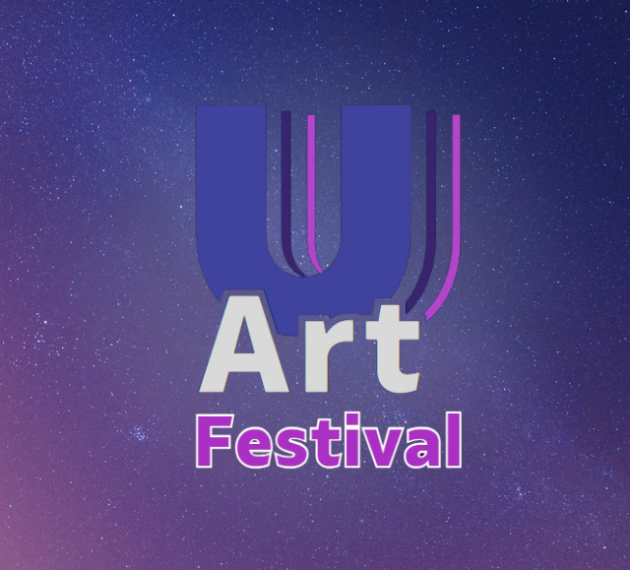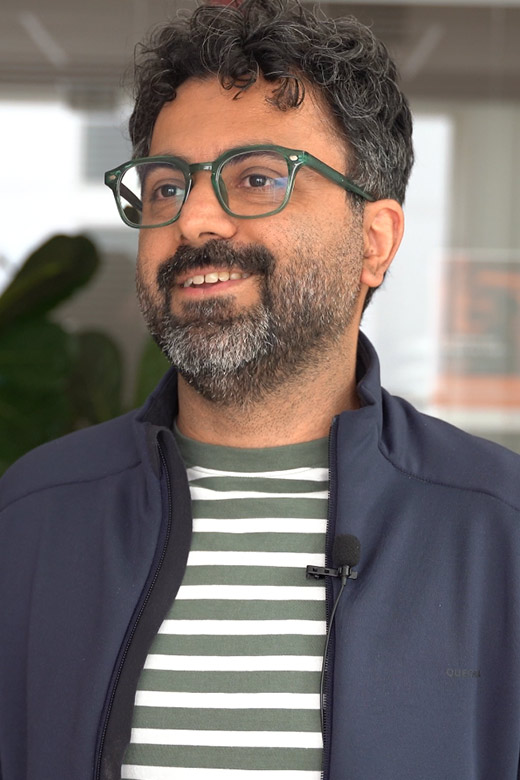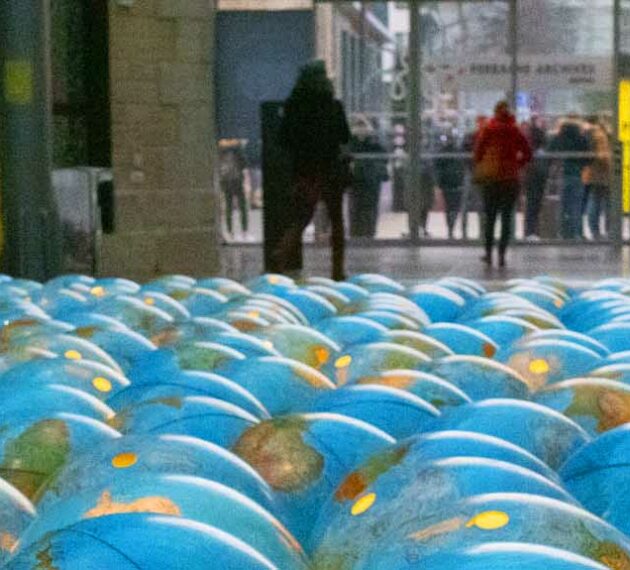Ali, an Iranian student at the ILCF (Institut de Langue et de Culture Française), has been learning French for a year. This year, he took part in the U-Art festival and won over the audience with his instrument, the Setar. A professional player of this small Iranian guitar, his interpretation of traditional music won him second place.
Here he talks about his artistic experience at UCLy and his hopes for culture in France and Iran.
Can you tell us a little about your background?
I started playing traditional Iranian music with an instrument, the Santoor, at the age of eight, and then, following on from this apprenticeship, I became a teacher of the same instrument at the age of 18 and learned the Setar. After immigrating to France, I decided to pursue my artistic projects here, as I realised that the French were very receptive to my music.
I realized that the French were very receptive to art, especially music. Iranian music is over 5,000 years old and is reminiscent of Mesopotamia and ancient Iran, whose visual arts you can contemplate at the Louvre Museum.
Its atmosphere is both mysterious and romantic, recalling the novels, bravery, mourning, mysticism and myths of this country. Unfortunately, after the political upheavals/changes in Iran in 1357, attention to music diminished and Iranian musicians were forced to work alone and without support. As a result, new generations in Western countries are unfamiliar with this art form. Of course, this lack of knowledge can be positive, as many listeners say that this music acts as an imaginary journey into the history and geography of Mesopotamia and Iran. It is commonplace in Iran to say that the highest artistic level of Iranian music is improvisation.
This degree of musical knowledge and expertise can be achieved after many years of practice, and I'd like to offer my experience in this field; the ultimate goal being, ultimately, to be able to set up collaborative projects with Western musicians. If the world were to change at the same speed as technology and robotics, people in tomorrow's worlds would become strangers to their past and origins, and at the same time face a bombardment of information.
It's an abstract sensation that's hard to explain. But perhaps we can convey this sensation in an artistic way.
If we accept that at some point there's a gap between us and our families, our traditions, our nationality and that
At the same time, it's as if we're drowning in information, so we can realize at certain moments that the melodies seem familiar and unfamiliar at the same time. I believe that traditional oriental music can make Westerners feel this way.
Read more

Le Festival U-Art met à l’honneur la créativité et l’expression artistique des étudiants et des salariés. Cet événement propose d’explorer des thématiques contemporaines à travers toutes les formes d’art.


